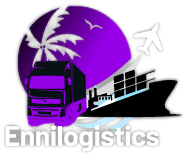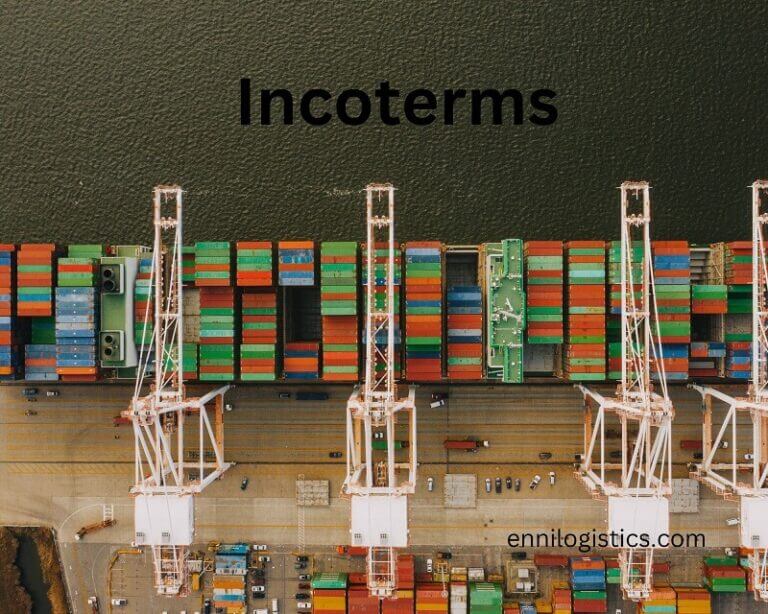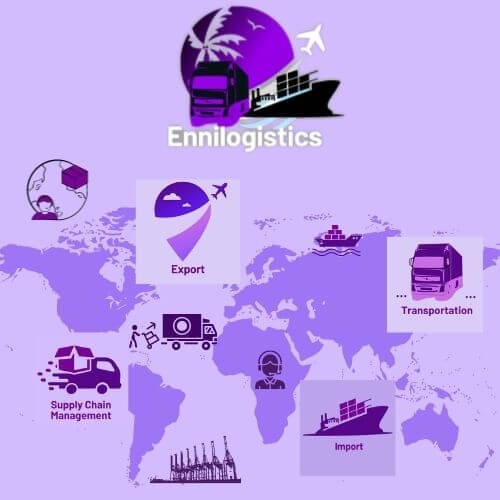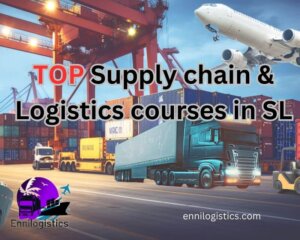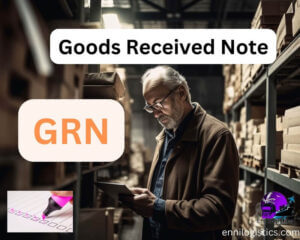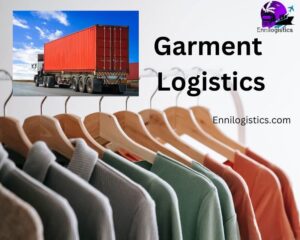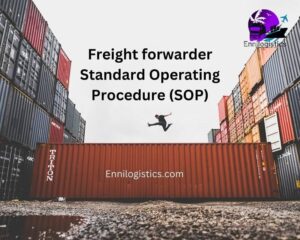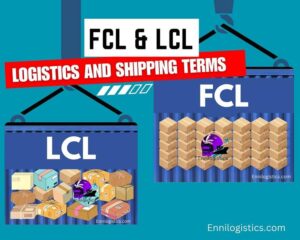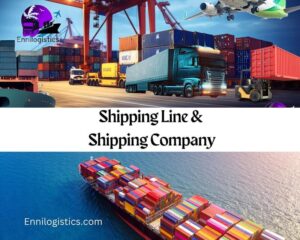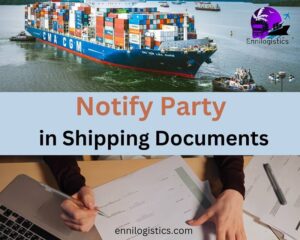What is the meaning of incoterm?
Incoterms stand for “international commercial terms”. So incoterm rules internationally recognized common rules and guidelines for international commercial trading. Delivery terms are also another name for incoterms.
Incoterm is an abbreviation of words or terms. See below examples
- EXW – Ex Works
- FCA – Free Carrier
- CPT – Carriage Paid To
Who is published by Incoterms?
Incoterms published by the International Chamber of Commerce (ICC). Incoterms are guides to share responsibilities among the buyer and seller such as payment for shipment, documentation part and insurance for cargo, clearance process from customs, and also other logistical-related activities involving the shipment.
Incoterm rules introducing
Let’s move on to the history of incoterms briefly. In 1936 International Chamber of Commerce (ICC) introduced a common set of rules and guidelines for international trading to minimize conflict between buyers and sellers in different countries. But incoterm rules are updated from time to time by ICC.
What is the Latest version of Incoterms?
The last updated Incoterm rules called Incoterm 2020 which is published by ICC.
What are the publications for incoterm 2020?
For further information let’s visit the ICC website for Incoterms 2020. Use the below link for free download instruction publication Incoterms® 2020 English – eBook and wall chart of Incoterms 2020.
What are versions of incoterms able to use in 2022 for international trading?
In 2022 you are able to use the last updated version of incoterm 2020. But some people are still using Incoterm rules 2010, so it is also valid for use these days.
What are the incoterm rules list?
There are 11 incoterm rules published by ICC in the incoterms 2020 version. Let’s move on to the incoterms 2020 rules list below.
There are main 3 modes of transportation, they are air, maritime, and land transportation. Maritime transportation is divided in to 2 parts sea and inland waterways.
7 Incoterm rules can use any mode of transportation
- EXW – Ex Works
- FCA – Free Carrier
- CPT – Carriage Paid To
- CIP – Carriage and Insurance Paid To
- DAP – Delivered at Place
- DPU – Delivered at Place Unloaded
- DDP – Delivered Duty Paid
4 Incoterm rules for sea and inland waterways only
- FAS – Free Alongside Ship
- FOB – Free on Board
- CFR – Cost and Freight
- CIF – Cost Insurance and Freight
Let’s see the details one by one
1. EXW – Ex Works
In the Exw process, the buyer is responsible to arrange full shipment from the seller’s place until goods are received to the final destination of the buyer’s place.
- Other names – Ex-factory, Ex warehouse.
- EXW can use any mode of transportation and it can use for different modes of transportation of goods.
- Seller’s Responsibilities– Has minimum responsibility for the shipment, He is responsible for goods available at the seller’s place with packaging. The seller’s place may factory, depot, or warehouse.
- Buyer’s Responsibilities-He has maximum responsibility incoterm for the shipment from the origin point of the shipment also called the seller’s place to the destination. Buyer must bear all the cost and responsibility from origin to final destination.
Advantages for Exporter or Seller
The main advantage for exporters is the need to pay attention to the manufacturing and buying process only.
It is much similar to local business. But the payment process is different than domestic trading. Then EXW is much more suitable for start-up business who has never exported before.
Disadvantages for Exporter or Seller
The exporter is involving packaging and goods availability on their premise but he not involving another process of shipment transportation. Then International trading partners’ engagement experience is lost to exporters. In this case it exporter can’t get discounts from the logistics partners such as freight forwarders, courier services, logistics service providers
Advantages for Importer or buyer
Importers can control shipping and logistics, insurance, and other things related to shipments. It is advantageous to importers because they can select their logistics and trading partners. It makes the shipment total cost is more cheapest as well as low risk.
Disadvantages to Importer
The main disadvantage is importer must bear all the costs and risks related to transportation.
The importer has responsible to arrange transport from seller’s premises and needs to do export custom clearance from the exporter’s country. It may difficult task to do as an importer.
You can watch the below video. For additional details on advantages and disadvantages regarding EXW incoterm,
2. FCA –Free Carrier
Meaning of FCA incoterm?
Under the FCA incoterm seller is responsible for transporting the shipment at the named place in the seller’s country. Then goods load into a designated carrier. From that place, the buyer is responsible for the bare risk and cost of shipment until the destination.
- FCA can use any mode of transportation and it can use for different modes of transportation of goods.
- Seller’s Responsibilities– Packing and making for export the shipment. Then need to load the goods to the carrier or transport the goods where the place named by the buyer in the seller’s country or the seller can hand them over to the goods person nominated by the buyer in the seller’s premises.
- -Where the place selected by the buyer is responsible to pick up goods, from that point buyer is responsible for bare risk and cost until unloading the goods to the buyer’s warehouse or buyer’s place.
- Risk Transfer Point-Named place of the buyer in the seller’s country as well as before the goods loaded into a carrier
- Goods Transfer point- Named place of buyer in seller’s country
- First carrier loading cost need to bare by the buyer.
3. FOB – Free On Board
Meaning of FOB incoterm?
Sea and inland waterways only using.
Named agreed port and seller has responsible for loading the cargo onto the named vessel.
The seller is responsible for clearing goods for export
Buyer’s Responsibilities- buyer is responsible for taking risks and bearing costs, including import clearance and duties from the point of goods loaded onto a vessel.
FOB commonly used when transporting bulk cargo, such as oil or grain
You can watch the below video to understand the Difference between FCA and FOB.
4. CPT – Carriage Paid To
What meaning of CPT incoterm?
- CPT can use any mode of transportation and it can use for different modes of transportation of goods.
- Seller’s Responsibilities– The seller is responsible for delivering the goods to where the destination point where the seller and buyer agreed. Hence transportation cost needs to bare by the seller. But cargo insurance is not done by the seller. Therefore, the seller is not responsible for the loss or damage of the goods during transportation. Risk must bear by the buyer.
- Buyer’s Responsibilities-Insurance needs to do for shipment. Otherwise, the buyer must bear all the risks regarding damage or loss during the transportation.
- Risk Transfer point– Named place of buyer in seller’s country
- Goods Transfer point- Named place of buyer in seller’s country
5. CIP – Carriage and Insurance Paid To
can be applied for any mode of transportation.
Seller’s Responsibilities-Purchasing insurance for the shipment. preparing documents for shipping, Packaging, paying customs handling fees at the origin, and Freight charges need to pay.
Who is liable to do insurance-Seller is liable for insurance of the cargoRisk Transfer point– when goods arrived at the first carrier risk transfer to the buyer
6. FAS – Free Alongside Ship
7. CFR – Cost and Freight
8. CIF – Cost Insurance and Freight
9. DAP – Delivered at Place
10. DPU – Delivered at Place Unloaded
11. DDP – Delivered Duty Paid
Great video explaining all the incoterms
Related Posts may you like to Read,
15 Essential Shipping Documents
Main Types Of Cargo Transported By Sea
Is Electronic Bill of Lading (e B/L) a new trend?
Shipment Arrival Notice/notification
ETA and ETD in shipping: Everything you need to know
